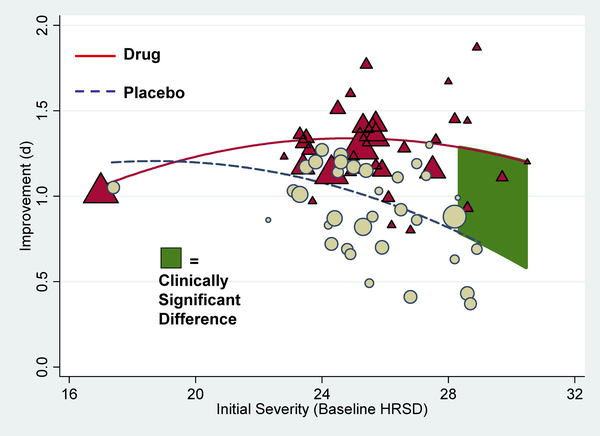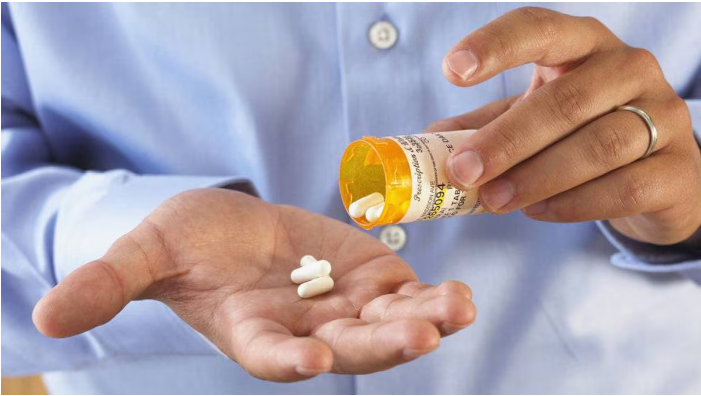Introduction
Welcome to another lesson from my life. My name is Naveen, and I have personally experienced the ups and downs of using antidepressants. Today, I want to share my journey and shed light on common misconceptions and the complex nature of these medications. This article is not just a clinical exposition but a reflection of my lived experiences with Effexor, having used it for 2.5 years and now navigating the path of tapering off these drugs.

Debunking the Chemical Imbalance Myth
One of the most persistent myths about depression is the notion that it is caused by a chemical imbalance in the brain, specifically low serotonin levels. If you ask people in Western countries, about 80 to 90% believe this to be true. This idea, known as the chemical imbalance theory, was first proposed by academics but was widely propagated by drug companies as part of their marketing strategy for antidepressants, particularly SSRIs (Selective Serotonin Reuptake Inhibitors). These drugs became blockbuster hits and are among the most widely used medications globally.
However, despite their popularity, there is no concrete evidence that depression is caused by low serotonin. Researchers have largely abandoned this theory. When people stop taking antidepressants, they often experience withdrawal symptoms such as low mood and anxiety. These symptoms are frequently mistaken for a relapse of the underlying condition, leading to the misconception that they need to stay on these medications indefinitely. In reality, these symptoms may indicate a need for a more gradual and careful tapering process.
Personal Reflections on Antidepressant Use
As someone who has used Effexor for 2.5 years, I have seen firsthand the benefits and limitations of these drugs. Initially, Effexor elevated my mood within four days, though not completely. It provided a much-needed reprieve from the depths of despair. However, the journey was not without significant side effects, including sexual dysfunction, mood swings, brain zaps, and loss of appetite.
In my experience, the numbing effect of Effexor was one of the most noticeable aspects. While it helped reduce negative emotions, it also blunted positive emotions, impacting my overall quality of life. This realization prompted me to explore the process of tapering off this medication.
The Rise of Antidepressant Prescriptions
Over the past 25 years, the prescription rates for antidepressants have skyrocketed. Initially reserved for severe cases, these medications are now commonly prescribed for a wide range of mental health conditions, including mild to moderate depression and anxiety. According to the CDC, over 43 million Americans are on antidepressants, with more than 15 million having been on the medication for over five years.
This trend is not limited to the United States. In Europe, the UK, and Australia, the rates are similarly high, with about one in six to one in eight adults using antidepressants in any given year. However, studies indicate that a significant proportion of these prescriptions are given to people who do not have an approved indication for the medication.
Understanding the Role of Antidepressants
The role of antidepressants in treating depression and anxiety is a subject of ongoing debate in academic circles. There are two primary models for understanding how psychiatric drugs work: the disease-centered model and the drug-centered model.
The disease-centered model, borrowed from mainstream medicine, suggests that antidepressants act by reversing an underlying chemical imbalance in the brain, much like antibiotics treat a bacterial infection. This model aligns with the chemical imbalance theory and has been widely promoted by drug companies.
On the other hand, the drug-centered model, as proposed by Professor Joanna Moncrieff, offers a different perspective. It suggests that antidepressants, like other psychoactive substances, alter the brain’s normal functioning and superimpose certain effects on top of existing symptoms. For instance, alcohol can reduce social anxiety by producing a calming effect, but it does not address the root cause of the anxiety.
What Do Antidepressants Really Do?
Through the lens of the drug-centered model, we can better understand the actual effects of antidepressants on our thoughts and feelings. These medications come in various forms, each with different properties. Some are energizing, others are sedating, and many cause emotional numbing. Surveys indicate that 50 to 70% of people on antidepressants report experiencing numbed emotions.
In my experience, emotional numbing was one of the most noticeable effects of Effexor. While it helped reduce negative emotions, it also blunted positive emotions and impacted my overall quality of life. This numbing effect extended to physical sensations, including sexual dysfunction, which is a common side effect of these medications.
Effectiveness of Antidepressants: A Closer Look
The effectiveness of antidepressants has been the subject of extensive research. Hundreds of randomized controlled trials have compared antidepressants to placebos over short periods, typically eight weeks. These studies often show a small difference between the two, with antidepressants providing a modest additional benefit.
On a 52-point depression scale, people given sugar pills (placebos) improved by about eight points over eight weeks, while those given antidepressants improved by about 9.8 points. The 1.8-point difference is statistically significant but not necessarily meaningful for many individuals, especially considering the adverse effects of the drugs.
Moreover, these studies are often funded by drug companies, which can introduce biases. Participants in the drug group are likely to recognize they are receiving the active medication due to side effects, leading to an amplified placebo effect. Long-term studies, such as the STAR*D study, show that the benefits of antidepressants tend to diminish over time, with only a small percentage of people remaining depression-free after extended use.

The Challenges of Tapering Off Antidepressants
One of the most challenging aspects of my journey has been tapering off Effexor. Many people, including myself, are concerned about the long-term effects of these medications, such as weight gain, sexual problems, and increased risk of physical health issues. Additionally, the withdrawal symptoms can be severe and prolonged.
Common withdrawal symptoms include dizziness, brain fog, headaches, and emotional disturbances like anxiety and depression. These symptoms are often mistaken for a relapse, leading doctors to recommend resuming the medication. However, we now understand that these are physiological withdrawal effects, not necessarily an indication of the underlying condition returning.

The Importance of Hyperbolic Tapering
To minimize withdrawal symptoms, a more gradual approach to tapering is necessary. Hyperbolic tapering is a science-based method that considers the relationship between the dose of the drug and its effect on the brain. This method involves making smaller and smaller reductions in the medication as the dose decreases, allowing the brain to adjust more gradually.
Traditional linear tapering, which involves reducing the dose by a fixed amount each time, can lead to significant withdrawal symptoms at lower doses. Hyperbolic tapering, on the other hand, ensures that each reduction has a consistent impact on the brain, making the process more manageable.
Reframing Our Understanding of Mental Health
One of the most important lessons I’ve learned is the need to reframe our understanding of mental health. Research suggests that depression and anxiety largely arise from life experiences and stresses, such as job loss, relationship breakdowns, and illness, rather than from faulty biology. Studies show that by the age of 40, 86% of people will experience clinical levels of depression or anxiety.
Understanding mental health problems in the context of an individual’s life can lead to more effective and empowering treatments. People who view their mental health issues as a result of life circumstances rather than a chemical imbalance tend to feel more hopeful and capable of managing their symptoms without relying solely on medication.
Practical Steps for Managing Mental Health
While medication can play a role in managing mental health, it is essential to consider other strategies and practices that can improve well-being. In my experience, incorporating mindfulness, regular exercise, and nurturing relationships has made a significant difference. Here are some practical steps that have helped me:
- Mindfulness: Practicing mindfulness and meditation can help reduce stress and improve emotional regulation.
- Exercise: Regular physical activity boosts mood and overall health.
- Healthy Relationships: Building and maintaining supportive relationships can provide emotional support and improve quality of life.
- Sleep Hygiene: Ensuring adequate and restful sleep is crucial for mental and physical well-being.
- Nutrition: Eating a balanced diet can positively impact mood and energy levels.

My Personal Struggle with Addiction
At a point when antidepressants were not very helpful, I found myself addicted to heroin. Fortunately, I was able to stop using heroin with the help of naltrexone. This experience further solidified my belief that addiction and depression can be overcome without long-term reliance on medication, though it is undoubtedly a challenging process.
A Message to Others
To those considering starting or stopping antidepressants, I encourage you to stop as soon as possible. While these medications can provide temporary relief, they also numb both sad and happy emotions. I believe depression can be cured without medications, but it requires time, patience, and addressing the underlying causes, which in today’s society often stem from the relentless pursuit of money and success.
Conclusion
Reflecting on my journey with Effexor, I realize the importance of being well-informed about these medications. They can provide relief during difficult times but also come with significant limitations and potential side effects. Understanding the complexities of depression and anxiety, and considering a holistic approach to mental health, can empower individuals to make informed decisions about their treatment.
If you are considering tapering off antidepressants, I urge you to do so under the guidance of a healthcare professional and to explore gradual methods like hyperbolic tapering. Remember, your mental health is a multifaceted aspect of your life, and addressing it requires a comprehensive approach.
Thank you for joining me. I hope my experiences and insights have provided valuable information and support. Stay safe, and take care of your mental well-being.
Resources I used
National Institute of Mental Health (NIMH)
- Website: NIMH
- Description: Offers extensive information on mental health disorders, treatment options, and current research.
Mayo Clinic
- Website: Mayo Clinic – Antidepressants
- Description: Provides detailed information on different types of antidepressants, their uses, side effects, and tapering guidelines.
Harvard Health Publishing
- Website: Harvard Health – Coming off Antidepressants
- Description: Discusses the process of tapering off antidepressants and managing withdrawal symptoms.
The Royal College of Psychiatrists
- Website: RCP – Stopping Antidepressants
- Description: Offers professional guidelines on how to safely stop taking antidepressants.
Journal of Affective Disorders
- Article: Hyperbolic tapering of antidepressants
- Description: Discusses hyperbolic tapering and its effectiveness in minimizing withdrawal symptoms.
Psychology Today
- Website: Psychology Today – Antidepressant Withdrawal
- Description: Explains withdrawal symptoms, their causes, and tips for managing them.
Mind (Mental Health Charity)
- Website: Mind – Coming off Psychiatric Drugs
- Description: Provides practical advice and support for those looking to come off psychiatric medications.
National Center for Biotechnology Information (NCBI)
- Article: Antidepressant discontinuation syndrome
- Description: An in-depth review of discontinuation syndrome associated with antidepressants.
World Health Organization (WHO)
- Website: WHO – Depression
- Description: Offers a global perspective on depression, its treatment, and public health strategies.
RxISK
- Website: RxISK – Antidepressant Withdrawal
- Description: A patient-focused resource that provides information on drug side effects, withdrawal, and personal experiences.

